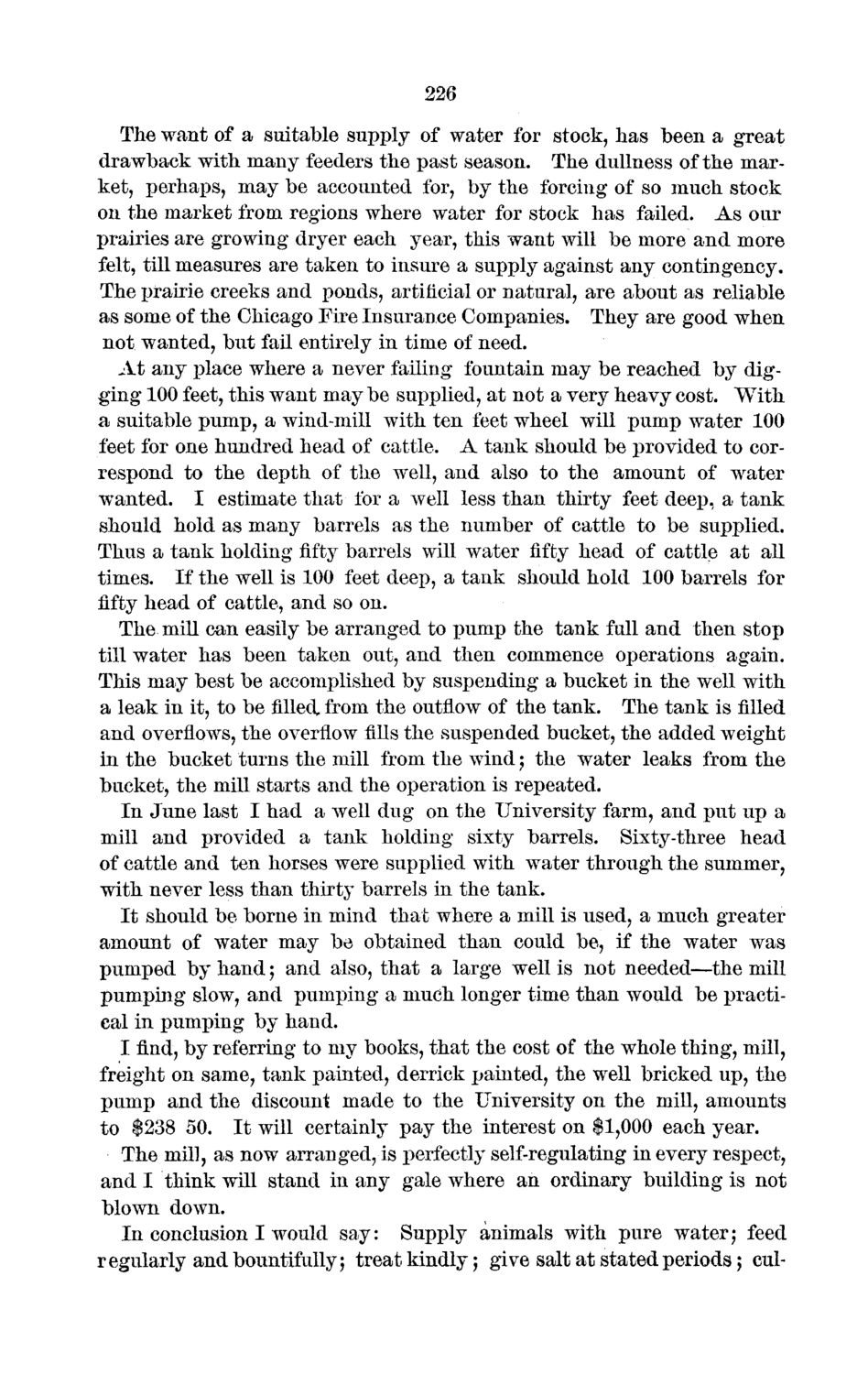| |
| |
Caption: Board of Trustees Minutes - 1872
This is a reduced-resolution page image for fast online browsing.

EXTRACTED TEXT FROM PAGE:
226 The want of a suitable supply of water for stock, has been a great drawback with many feeders the past season. The dullness of the market, perhaps, may be accounted for, by the forcing of so much stock on the market from regions where water for stock has failed. As our prairies are growing dryer each year, this want will be more and more felt, till measures are taken to insure a supply against any contingency. The prairie creeks and ponds, artificial or natural, are about as reliable as some of the Chicago Fire Insurance Companies. They are good when not wanted, but fail entirely in time of need. A t any place where a never failing fountain may be reached by digging 100 feet, this want may be supplied, at not a very heavy cost. With a suitable pump, a wind-mill with ten feet wheel will pump water 100 feet for one hundred head of cattle. A tank should be provided to correspond to the depth of the well, and also to the amount of water wanted. I estimate that for a well less than thirty feet deep, a tank should hold as many barrels as the number of cattle to be supplied. Thus a tank holding fifty barrels will water fifty head of cattle at all times. If the well is 100 feet deep, a tank should hold 100 barrels for fifty head of cattle, and so on. The mill can easily be arranged to pump the tank full and then stop till water has been taken out, and then commence operations again. This may best be accomplished by suspending a bucket in the well with a leak in it, to be filled from the outflow of the tank. The tank is filled and overflows, the overflow fills the suspended bucket, the added weight in the bucket turns the mill from the wind; the water leaks from the bucket, the mill starts and the operation is repeated. In June last I had a well dug on the University farm, and put up a mill and provided a tank holding sixty barrels. Sixty-three head of cattle and ten horses were supplied with water through the summer, with never less than thirty barrels in the tank. It should be borne in mind that where a mill is used, a much greater amount of water may be obtained than could be, if the water was pumped by hand; and also, that a large well is not needed—the mill pumping slow, and pumping a much longer time than would be practical in pumping by hand. I find, by referring to my books, that the cost of the whole thing, mill, freight on same, tank painted, derrick painted, the well bricked up, the pump and the discount made to the University on the mill, amounts to $238 50. It will certainly pay the interest on $1,000 each year. The mill, as now arranged, is perfectly self-regulating in every respect, and I think will stand in any gale where an ordinary building is not blown down. In conclusion I would say: Supply animals with pure water; feed regularly and bountifully; treat kindly; give salt at stated periods; cul-
| |